We must stand up for truths Putin disdains
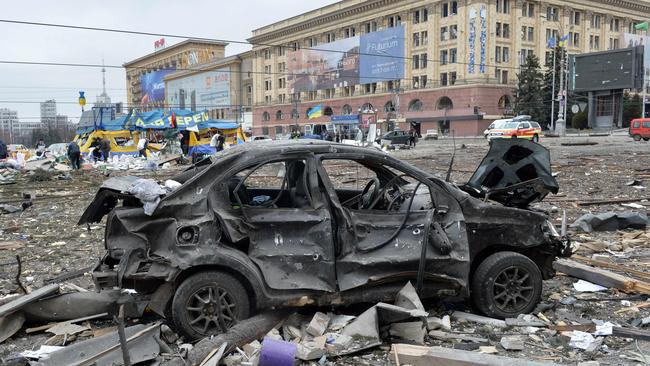
Which would have been fine, were it not for the fact that a day earlier 30,000 Soviet troops and 1,000 tanks had entered Hungary. Hungarian citizens were fighting them in the streets with rifles and petrol bombs. Eventually Moscow would order Operation Whirlwind, bomb Budapest, kill 2,000 Hungarians, occupy the country’s parliament and arrest, and eventually execute, Hungary’s reformist leader.
The West, in any case preoccupied by the Suez crisis, decided there was nothing it could do. Two weeks after it was all over, Eisenhower told a press conference that he didn’t recommend armed revolt by people against “force over which they could not possibly prevail”.
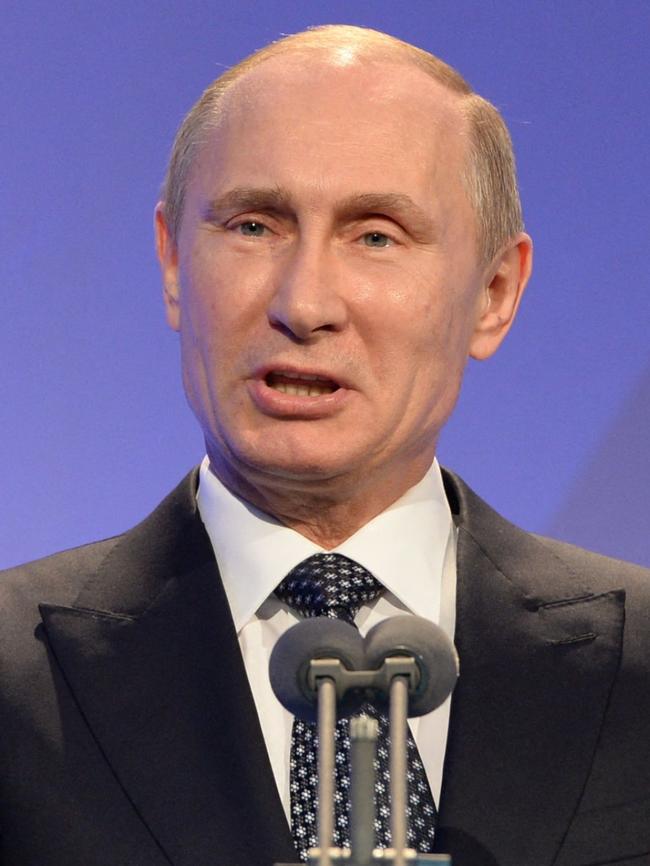
There seem to be two lessons from this miserable episode. The first is a sobering one. Eisenhower saw what happened in Hungary as one part of a longer war. The United States would be committed to the security of Europe but would not risk a hot war and a nuclear confrontation over countries within what it had conceded was the Soviet sphere of influence. It took almost 35 more years for Cold War policies to help liberate Hungary.
The second is that fears that the West is now so demoralised and “woke” and decadent that it cannot respond to a challenge are misplaced. The West has been far tougher, more united, less distracted, better able to see what is at stake than it was in 1956. And less willing to wait 35 years.
We will need this resolve. It has been said that Vladimir Putin has started a war he doesn’t know how to finish. But this has implications for us, too. It means that today’s battle for Ukrainian cities is just a skirmish in a long war, and one that will require sacrifices and an attention span greater than a few news cycles.
We will need a patient strategy. A direct military engagement with the Russians threatens a nuclear conflict. That is what we would be risking if we tried to end Russia’s invasion through imposing a so-called no fly zone. And there is no point pretending otherwise. But not doing that will mean a lengthy campaign of containment and resistance.
Through it we will have to maintain a strong sense of who we are and what we stand for. We must resist Putin’s autocracy with self-confidence about the principles we are defending.
This war is a rebuke to those people who think that western liberal democracy is so flawed as to be almost worthless. This is a view held on the left by those who argue that its institutions are corrupt and inequitable, and its instincts imperialist. Yet in Ukraine people are dying to advance the dream of being a western liberal democracy, which they correctly see as liberation.
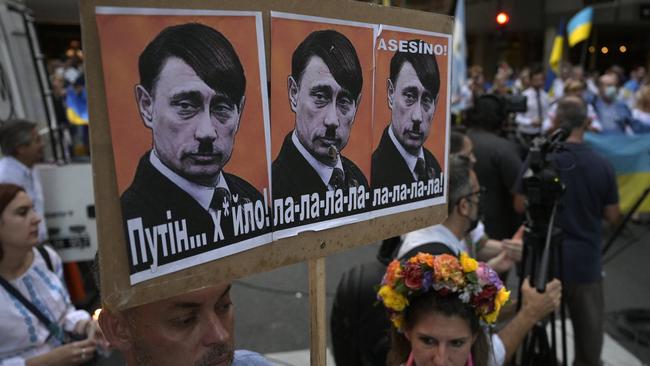
The sceptical view, however, is also held by some on the right. They see liberal democracy as having been fatally weakened by overindulgence. When the head of MI6 posted his support for LGBT+ history month, it was regarded as a preposterous thing to be doing in the week of Putin’s attack. What better example could there be of the triviality and self-absorption of the modern West?
This criticism shows ignorance about the past and present. Homophobia has repeatedly proven a serious security threat to this country, as it left those guarding our secrets open to blackmail. And we are now facing an enemy who despises precisely the modern civic equality that the MI6 statement represented. On both grounds the post was entirely appropriate.
It is Putin’s argument that our tolerance and openness make us weak and vulnerable. We must robustly respond that we are proud of our openness and modernity and his failure to embrace that will ultimately be his downfall.
Ukraine is a society in which there is still a great deal of prejudice of all sorts but its leadership understands in which direction progress lies. It knows what it wants for its future, even though it isn’t there yet.
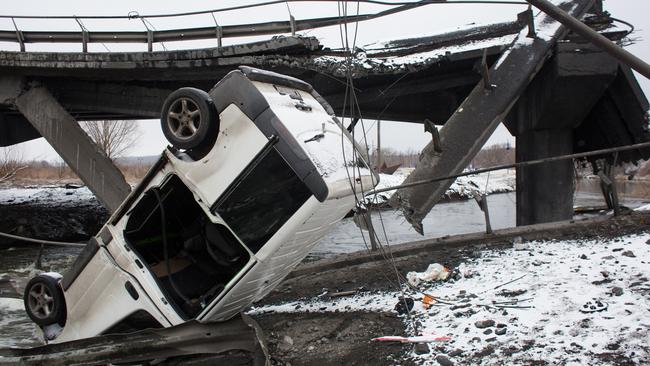
The war is also a rebuke to those people who argue that commitment to national identity is always, and everywhere, reactionary and backward looking. Those who dislike the waving of the Union Jack should reflect that when, over these past few days, we wished to demonstrate our support for peace and resistance and democracy we waved the flag of Ukraine or wore its colours. Defending the integrity and independence of Ukraine has been the cause around which President Zelensky has united his people and rallied world opinion. National feeling can be a powerful liberalising force.
Yet what the Ukrainians are fighting for is not simply national independence. It is for an independent Ukraine to take its full part in the liberal international order. Its government wants membership of the European Union and of Nato. Victory in the long war against Putin must involve strengthening international institutions and the rule of law.
The war is a rebuke to those who think that national pride and solidarity are embarrassing. But it is also a reminder about the power of truth and of rigorous honesty about history.
When I visited Ukraine last autumn I was involved in many discussions, both formal and informal, about its troubled history. Its relationship with Poland, its past under the Nazis and its experience as part of the Soviet Union. Some of these conversations were very difficult for the Ukrainians. They involved accepting the truth about the involvement of the Ukrainian people in collaboration and mass murder.
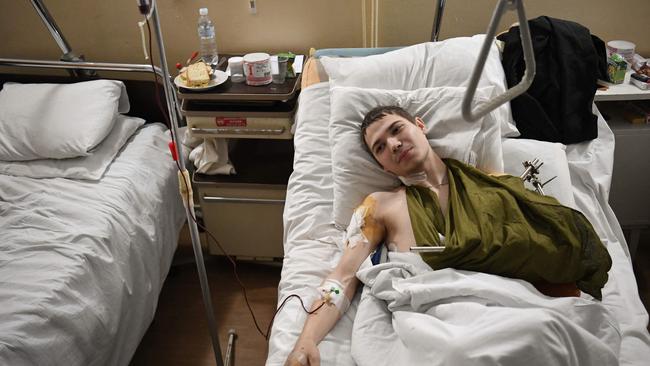
Yet there was an understanding that the progress of the country, its future as a modern nation, depended on having these discussions and learning from them.
Putin rejects that discussion. His war is about rewriting history, allocating crimes to everyone else save the Russians. He even blames the Poles for Stalin’s invasion of Poland. He gives long speeches which skip lightly over hundreds of years of inconvenient history. He overlooks the story of Ukrainian nationalism, except where he feels he can blame it for the Nazis.
An open, truthful discussion of history would be a disaster for him. And it must be part of our ideological war with him and other autocracies. But it cannot be unless we are honest and unafraid about confronting our own history. We are entitled to pride in our nation, to celebration of our achievements, even to enjoyment of our national myths. But only if accompanied by the frankness we demand from others.
In the war that Putin has started, he must discover that the light of western liberalism has not gone out.
The Times







On October 25, 1956 President Dwight Eisenhower gave a campaign address to cheering supporters in Madison Square Garden in New York City. He defended his time in office, he attacked the Democrats, and he devoted half a vague sentence to the topic of eastern Europe. America, he said, would never forget the people of Poland and Hungary. And that was it.